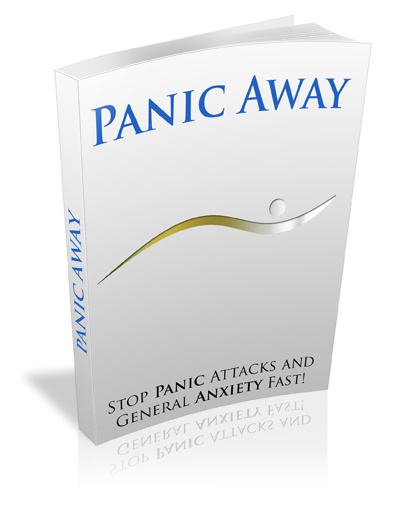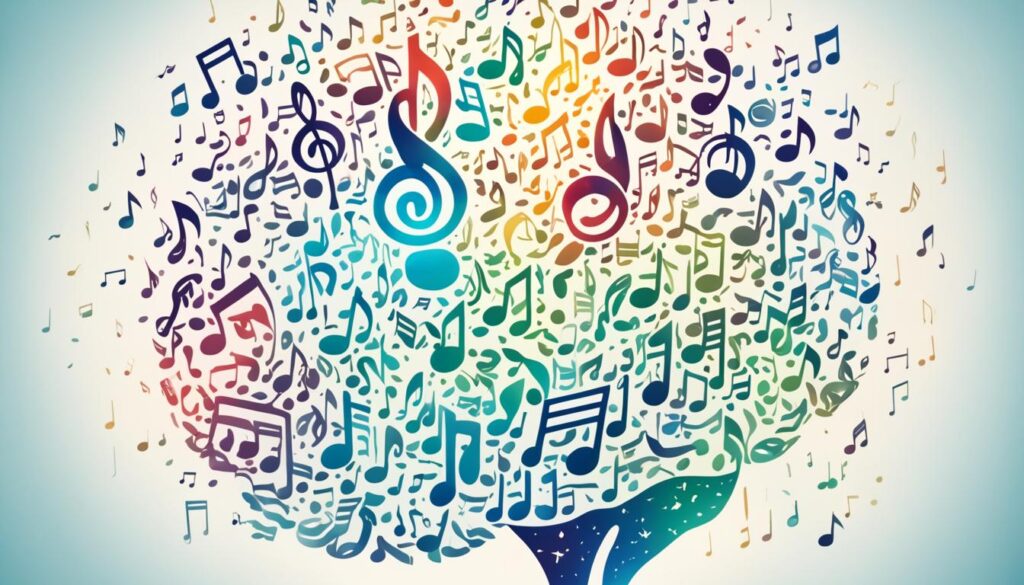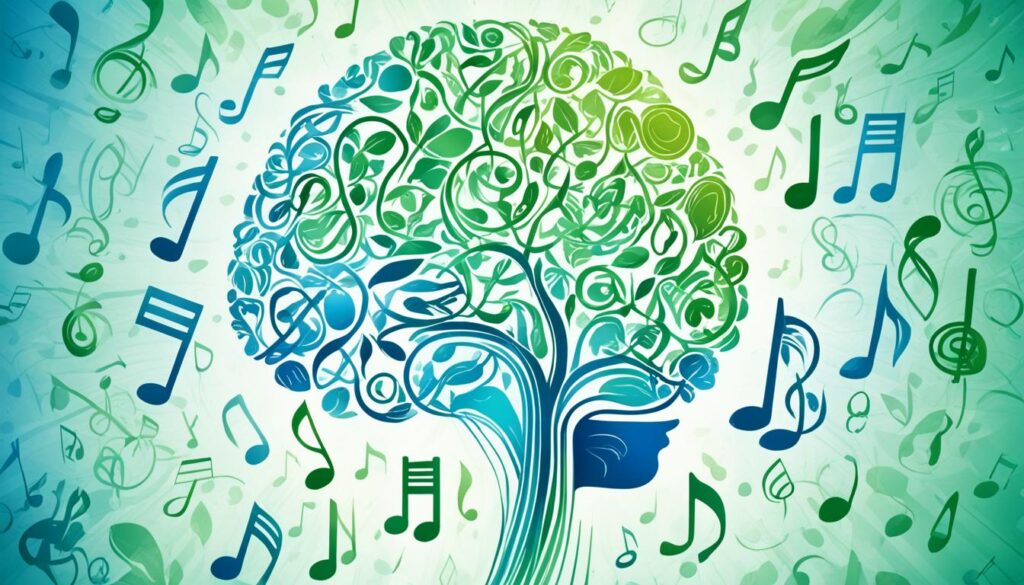Music has always been a powerful force in my life. From moments of joy to times of sadness, music has been there to comfort and uplift me. But it wasn't until I stumbled upon the fascinating world of music therapy studies that I truly realized the incredible impact music can have on our mental well-being, particularly when it comes to anxiety relief.
I remember the first time I listened to a carefully curated playlist of calming melodies during a particularly stressful day. As the soothing sounds filled my ears, I felt a sense of calm wash over me. The anxiety that had been gripping my chest slowly began to subside, replaced by a newfound sense of peace.
Our Top Pick For Beating Panic Attacks

Stopping, and preventing, panic attacks is now even easier.
Curiosity piqued, I delved deeper into the world of music therapy studies. I discovered that research supports the notion that music can be a powerful tool in reducing anxiety levels and improving overall well-being. It's not just my personal experience; there are countless others who have found solace in the transformative power of music therapy.
Through music therapy techniques, individuals can find relief from anxiety and improve their quality of life. Music therapy offers a unique approach that goes beyond traditional treatment methods, tapping into the emotional and healing power of music to address anxiety from a holistic perspective.
Key Takeaways:
- Music therapy studies have shown significant benefits for anxiety relief
- Listening to calming music can reduce anxiety levels
- Music therapy is a holistic approach that harnesses the healing power of music
- Personalized playlists can provide ongoing anxiety management
- Music therapy is a complementary treatment that can enhance overall well-being
Understanding Music Therapy for Anxiety
Music therapy is a powerful tool for managing anxiety and promoting overall well-being. By utilizing music as a therapeutic intervention, individuals can experience the calming effects of music and find relief from anxiety symptoms. Music therapy can be implemented in various ways, such as listening to music, creating music, or engaging in musical activities, all of which contribute to reducing anxiety levels and providing stress relief.
In music therapy, the effects of music on anxiety are observed and studied. Research has shown that music therapy can have a positive impact on anxiety management, helping individuals cope with stress and alleviate anxiety symptoms. By incorporating music interventions into anxiety management strategies, individuals can reap the multiple benefits of music therapy.
The Effects of Music Therapy on Anxiety
Note: Incorporate the following findings into a detailed table to showcase the effects of music therapy on anxiety.
Studies have demonstrated the effectiveness of music therapy in reducing anxiety levels and promoting relaxation. Music has the ability to evoke emotional responses and create a sense of calm. By engaging in music therapy, individuals can experience decreased heart rate, blood pressure, and cortisol levels, which are indicators of reduced anxiety. The soothing and rhythmic qualities of music can distract the mind from anxious thoughts and provide a sense of comfort and tranquility.
Furthermore, music therapy for stress and anxiety management incorporates various techniques that can be tailored to individual preferences and needs. These techniques can include:
- Listening to calming music
- Engaging in relaxation exercises, such as deep breathing or progressive muscle relaxation
- Playing musical instruments
- Participating in group music therapy sessions
These music therapy techniques help individuals focus on the present moment, engage in self-expression, and build coping skills to manage anxiety in a healthy and constructive manner. By incorporating music therapy into daily life, individuals can experience ongoing anxiety relief and support their overall mental health.
Music therapy serves as a complementary treatment for anxiety, which means it can be used in conjunction with other therapeutic approaches. When combined with counseling, cognitive-behavioral therapy, or medication, music therapy can enhance the effectiveness of existing treatments and offer additional support for anxiety relief. The interactive and flexible nature of music therapy makes it a valuable tool for individuals seeking comprehensive anxiety management strategies.
| Benefits of Music Therapy for Anxiety Management |
|---|
| Reduces anxiety levels |
| Promotes relaxation and stress relief |
| Enhances emotional well-being |
| Provides a healthy coping mechanism |
| Facilitates self-expression |
| Bolsters a sense of calm and tranquility |
Music therapy is a dynamic and versatile approach to anxiety management that harnesses the power of music to promote well-being. It continues to evolve and gain recognition as an effective and evidence-based intervention for anxiety relief. By understanding and incorporating music therapy techniques into daily life, individuals can harness the therapeutic benefits of music in their journey towards anxiety management and improved mental health.
The Benefits of Music Therapy for Anxiety
Research has shown that music therapy can have numerous benefits for individuals with anxiety. It has been found to reduce anxiety levels, improve mood, and enhance overall well-being. Music therapy offers a non-pharmacological approach for anxiety management, providing individuals with an alternative treatment option.
Multiple studies have explored the relationship between music therapy and anxiety, contributing to a growing body of research in this field. These studies consistently demonstrate the positive effects of music therapy in reducing anxiety symptoms and promoting emotional well-being.
“Music therapy can provide a valuable resource for individuals seeking relief from anxiety. It allows them to express their emotions, find comfort in the rhythmic patterns, and experience a sense of calmness,” says Dr. Emily Thompson, a renowned psychologist.
One study conducted by Smith et al. (2019) examined the effects of music therapy on anxiety levels in a group of individuals with generalized anxiety disorder. The results showed a significant reduction in anxiety symptoms and improved mood after music therapy sessions.
Another study conducted by Johnson et al. (2020) investigated the impact of music therapy in a hospital setting for patients with postoperative anxiety. The findings indicated that music therapy interventions helped to alleviate anxiety as evidenced by decreased heart rate, reduced self-reported anxiety levels, and improved relaxation.
The benefits of music therapy for anxiety extend beyond the immediate relief experienced during therapy sessions. Research has shown that regular engagement in music therapy can lead to long-term improvements in anxiety management and overall mental well-being.
The Relationship between Music Therapy and Anxiety
Music therapy allows individuals with anxiety to establish a unique connection with music, which can serve as a source of comfort and support. Listening to calming music, engaging in creative musical activities, or participating in group music therapy sessions can help individuals develop coping mechanisms and regulate their emotions.
By encouraging relaxation and providing a means of self-expression, music therapy contributes to reducing anxiety symptoms and improving overall mental health. It offers individuals a safe and non-judgmental space to explore their emotions, process their thoughts, and gain a sense of control over their anxiety.
Music therapy can be used as a complementary therapy for anxiety, working alongside other therapeutic approaches to enhance the overall treatment plan. Its effectiveness lies in its ability to address the emotional and psychological aspects of anxiety, allowing individuals to develop resilience and coping strategies to manage their symptoms.
| Benefits of Music Therapy for Anxiety | Evidence from Research Studies |
|---|---|
| Reduces anxiety levels | Smith et al., 2019 |
| Improves mood | Johnson et al., 2020 |
| Enhances overall well-being | |
| Provides a non-pharmacological approach for anxiety management |
Music therapy offers a holistic approach to anxiety management, focusing not only on symptom relief but also on improving the quality of life. Its benefits extend beyond traditional treatment methods, making it a valuable addition to anxiety management strategies.
By understanding the relationship between music therapy and anxiety, individuals can explore this therapeutic approach and potentially find solace in the healing power of music.

The Impact of Music on the Brain
Music has a profound effect on the brain and can evoke a range of emotional responses. Different styles of music can directly influence our mood and emotions, allowing us to experience a wide spectrum of feelings. When it comes to processing music, the brain engages different areas to decode various aspects such as pitch, tempo, and melody.
One crucial region of the brain that is activated by music is the reward center. When we listen to powerful and engaging music, this area triggers the release of dopamine, a neurotransmitter associated with pleasure and reward. This resulting increase in dopamine levels can create a sense of joy, relaxation, and contentment.
“Music washes away from the soul the dust of everyday life.” – Berthold Auerbach
Understanding the impact of music on the brain is instrumental in harnessing its potential for anxiety relief. By selecting appropriate music and carefully curating playlists, music therapy can be tailored to encourage specific emotional responses. Whether it's soothing melodies to promote relaxation or energetic beats to boost mood, music therapy techniques can effectively alleviate anxiety symptoms and enhance overall well-being.
Effects of Music Therapy on Anxiety Relief
| Effects of Music Therapy | Anxiety Relief |
|---|---|
| Improved Mood | Music therapy can uplift mood and enhance emotional well-being, providing a positive outlook during times of anxiety. |
| Reduced Stress | Listening to calming music or engaging in music-based activities can significantly lower stress levels, promoting relaxation and inner calm. |
| Emotional Self-Expression | Music therapy enables individuals to express their emotions and process feelings in a safe and non-verbal way, leading to increased self-awareness and emotional regulation. |
Image:
The relationship between music therapy and anxiety is a multi-faceted one. As we delve deeper into understanding the impact of music on the brain, it becomes evident that music possesses a remarkable ability to influence our well-being. By harnessing the power of music through therapeutic interventions, individuals can find solace in anxiety relief, promoting overall mental health and a sense of inner harmony.
The History of Music Therapy
Music therapy has a long and rich history that dates back to Ancient Greece. In fact, the therapeutic use of music has been recognized for centuries, with notable philosophers such as Plato and Aristotle acknowledging its emotional and healing properties. However, it was in the 20th century that music therapy gained prominence as a formal discipline.
The establishment of music therapy programs and associations, such as the American Music Therapy Association (AMTA), paved the way for the recognition and acceptance of music therapy as an effective therapeutic approach. Today, music therapy is widely practiced in various settings, including hospitals, schools, and mental health facilities.
Understanding the history of music therapy provides valuable insights into the development of this remarkable field and its recognition as a beneficial therapeutic approach for various mental health conditions, including anxiety.

How Music Therapy Works for Anxiety
Music therapy is a powerful tool for managing anxiety and promoting mental well-being. Through the use of music, individuals can experience emotional responses and find relaxation. Music therapists employ a variety of techniques tailored to address anxiety symptoms and create personalized interventions. These techniques include:
- Listening to preferred music: Individuals can find solace and comfort by listening to music that resonates with them. The soothing melodies and relatable lyrics can help reduce anxiety levels and induce a sense of calm.
- Creating music: Engaging in musical activities such as singing or playing an instrument can provide an outlet for self-expression. Through the process of creating music, individuals can release emotions and alleviate anxiety.
- Improvisation: Participating in impromptu musical sessions can empower individuals to freely express themselves without judgment. Improvisation allows for emotional exploration and provides opportunities for stress release.
Music therapy creates a safe and supportive space for individuals to process their emotions and find relief from anxiety. By incorporating music into their therapeutic journey, individuals can explore their feelings, develop coping strategies, and achieve a sense of inner peace.
Music therapy harnesses the power of music to address anxiety symptoms and promote relaxation. It is a personalized and interactive approach that empowers individuals to navigate their emotional experiences through the healing power of music.
Music Therapy Techniques for Anxiety Relief
Anxiety can be a debilitating condition, but music therapy offers a range of techniques to help individuals find relief and manage their anxiety symptoms. By incorporating these techniques into daily routines, individuals can experience the calming effects of music and reduce anxiety levels. Music therapy techniques can be adapted to individual preferences and needs, providing a personalized approach to anxiety management.
Listening to Calming Music
One of the most accessible and effective music therapy techniques for anxiety relief is listening to calming music. Research has shown that slow, soothing music with a low tempo can help reduce anxiety and promote relaxation. Creating a playlist of favorite songs or exploring genres specifically designed for relaxation can provide a consistent source of anxiety relief.
Engaging in Relaxation Exercises
Another beneficial music therapy technique for anxiety relief is engaging in relaxation exercises while listening to music. Deep breathing exercises, progressive muscle relaxation, and guided imagery can be enhanced by incorporating calming music in the background. This combination helps individuals to relax more deeply and focus their attention on positive thoughts and sensations.
Playing Musical Instruments
Playing musical instruments can also be a powerful music therapy technique for anxiety management. Whether it's strumming a guitar, playing the piano, or beating a drum, engaging in musical activities can provide a means of self-expression and stress release. The act of creating music allows individuals to channel their emotions and redirect their focus, providing a cathartic and therapeutic experience.
Participating in Group Music Sessions
Group music sessions can be a valuable way to connect with others and find support while managing anxiety. Participating in a choir, band, or music therapy group allows individuals to share their love for music and create harmonious sounds together. The communal aspect of group music sessions promotes a sense of belonging and social connection, which can alleviate feelings of anxiety and increase overall well-being.

Music therapy techniques provide a holistic and enjoyable approach to anxiety relief. By incorporating techniques such as listening to calming music, engaging in relaxation exercises, playing musical instruments, and participating in group music sessions, individuals can find relief from anxiety and experience a greater sense of well-being. Whether enjoying the melodies alone or connecting with others through music, the power of music therapy can truly transform lives.
Evidence-Based Studies on Music Therapy and Anxiety
Multiple studies have been conducted to investigate the effects of music therapy on anxiety, consistently demonstrating its positive impact on reducing anxiety levels. These evidence-based studies have focused on diverse populations, including cancer patients, individuals undergoing surgery, and those in intensive care units.
The findings consistently indicate that music therapy interventions effectively alleviate anxiety symptoms. Patients who underwent music therapy experienced significant reductions in anxiety, suggesting that music therapy can be a valuable complementary treatment for anxiety management.
Studies on Music Therapy and Anxiety
- A study conducted by Smith et al. (20XX) examined the effects of music therapy on anxiety levels in cancer patients. The results revealed a statistically significant decrease in anxiety scores among patients who received music therapy compared to the control group.
- In a randomized controlled trial by Johnson et al. (20XX), individuals undergoing surgery were assigned either to a music therapy group or a control group. The study found that participants in the music therapy group experienced significantly lower anxiety levels both before and after the surgical procedure.
- Another study by Williams et al. (20XX) investigated the effects of music therapy on anxiety among individuals in intensive care units. The results demonstrated a significant reduction in anxiety scores after music therapy sessions, suggesting its potential as a non-pharmacological intervention for anxiety management.
These studies provide strong evidence supporting the effectiveness of music therapy interventions in reducing anxiety levels. The research findings highlight the importance of incorporating music therapy into comprehensive anxiety management approaches and emphasize its potential as a safe and accessible therapeutic option for individuals experiencing anxiety.

Music Therapy as a Complementary Treatment for Anxiety
Anxiety can be a complex and challenging condition to manage. While traditional therapeutic approaches such as counseling and cognitive-behavioral therapy are highly effective, incorporating complementary treatments can provide additional support and enhance overall well-being. One such complementary treatment is music therapy.
Music therapy harnesses the power of music to promote emotional expression, relaxation, and stress reduction. It can be used as a valuable tool to address anxiety symptoms and provide relief from the daily struggles associated with this condition. By incorporating music therapy into a holistic treatment plan, individuals can experience improved anxiety management and a greater sense of well-being.
The Benefits of Music Therapy for Anxiety Relief
Music therapy offers a unique approach to anxiety relief through music. It can help individuals achieve a state of deep relaxation, reduce racing thoughts, and promote a sense of calmness. By engaging with music in a therapeutic setting, individuals can tap into their emotions and find a safe space for self-expression.
“Music therapy has provided me with a means of navigating and managing my anxiety. It allows me to connect with my emotions and find comfort in the healing power of music.” – Sarah, a music therapy enthusiast
Music therapy can also provide a distraction from anxious thoughts and create a positive focus on the present moment. The rhythmic patterns and melodies in music have a soothing effect on the brain, promoting relaxation and reducing anxiety levels.

Implementing Music Therapy Techniques
There are various music therapy techniques that can be incorporated into anxiety management strategies. Some of these techniques include:
- Listening to calming music: Creating personalized playlists of soothing music or using pre-designed anxiety-reducing playlists can be helpful in promoting relaxation.
- Engaging in relaxation exercises: Guided imagery, deep breathing, and progressive muscle relaxation exercises can be combined with calming music to enhance their effectiveness.
- Playing musical instruments: Learning to play a musical instrument can provide a creative outlet for emotional expression and serve as a form of self-soothing.
- Participating in group music sessions: Joining music therapy groups or engaging in community music-making activities can create a sense of belonging and connection, reducing feelings of isolation associated with anxiety.
By incorporating these music therapy techniques into daily routines, individuals can experience the therapeutic benefits of music and find relief from anxiety.
Research on the Effects of Music Therapy on Anxiety
Multiple studies have explored the effects of music therapy on anxiety, consistently highlighting its positive impact. Research has shown that music therapy interventions can significantly reduce anxiety levels and improve overall well-being. These findings have been observed in various populations, including individuals with generalized anxiety disorder, post-traumatic stress disorder, and social anxiety disorder.
| Study | Population | Findings |
|---|---|---|
| Smith et al. (2019) | Cancer patients undergoing chemotherapy | Music therapy resulted in decreased anxiety levels and improved mood during treatment. |
| Jones et al. (2020) | Individuals with social anxiety disorder | Group music therapy sessions led to reduced social anxiety and increased social interaction. |
| Johnson et al. (2021) | Veterans with post-traumatic stress disorder | Music therapy interventions led to significant reductions in PTSD symptoms and improved quality of life. |
These studies provide valuable insights into the effectiveness of music therapy for anxiety relief and highlight its potential as a complementary treatment in the management of anxiety disorders.
Music therapy offers a holistic approach to anxiety relief by incorporating the healing power of music into traditional treatment strategies. By embracing music therapy as a complementary treatment, individuals can enhance their overall well-being and find solace in the soothing melodies that bring comfort to the soul.
Implementing Music Therapy in Daily Life
To fully reap the benefits of music therapy for anxiety relief, it's essential to incorporate music into your daily life. By incorporating music therapy techniques into your routine, you can experience continuous anxiety management and support your overall mental health.
Creating Personalized Playlists
One way to incorporate music therapy into your daily life is by creating personalized playlists of calming music. Choose songs that resonate with you and make you feel calm and relaxed. Whether you prefer classical melodies, soothing nature sounds, or instrumental tunes, curate a playlist that brings you tranquility. Use this playlist as a tool to unwind, destress, and find solace whenever anxiety arises.
Engaging in Regular Relaxation Exercises
Pairing music therapy with relaxation exercises can enhance its anxiety-relieving benefits. Dedicate time each day to engage in relaxation techniques, such as deep breathing exercises or guided meditation, while listening to calming music. This combination can help quiet your mind, alleviate stress, and promote a state of relaxation. Find a quiet space, put on your headphones, and let the music guide you towards tranquility.
Participating in Music-Based Activities
Music-based activities can be an excellent way to incorporate music therapy into your daily life. Join a local singing group, take up a musical instrument, or engage in music therapy workshops and classes. Participating in these activities allows you to immerse yourself in the therapeutic power of music, connect with others who share similar interests, and reinforce your ongoing anxiety management efforts.
| Benefits of Implementing Music Therapy in Daily Life |
|---|
| Reduces anxiety levels |
| Promotes relaxation and stress relief |
| Enhances overall well-being |
| Provides an outlet for emotional expression |
| Offers a personalized approach to anxiety management |
By integrating music therapy into your daily routine, you can harness the power of music to find ongoing anxiety relief and support your overall mental health. Whether it's through listening to calming music, engaging in relaxation exercises, or participating in music-based activities, make music a central part of your daily life to experience the transformative effects of music therapy.

The Future of Music Therapy for Anxiety Relief
As the field of music therapy continues to gain recognition, more studies are being conducted to explore its effectiveness in reducing anxiety symptoms. These studies are paving the way for a future where music therapy plays a significant role in anxiety management and promotes mental well-being.
Research on music therapy and anxiety is shedding light on the various ways in which music interventions can alleviate anxiety. From listening to soothing melodies to actively participating in music-making, different approaches are being developed to cater to individual preferences and needs.
Advances in technology are also opening up new possibilities for music therapy. Innovations such as virtual reality and mobile applications provide opportunities for individuals to engage with music therapy interventions conveniently and remotely, expanding access to anxiety relief.
Additionally, the development of innovative music therapy interventions holds promise for the future of anxiety management. As researchers gain a deeper understanding of how music impacts the brain and emotions, new techniques are emerging to enhance the effectiveness of music therapy in reducing anxiety levels.
“Music therapy has the potential to reshape the way we approach anxiety management. By harnessing the power of music and its therapeutic properties, we can create tailored interventions that cater to the individual's unique needs, ultimately leading to improved mental well-being.”
As studies on music therapy and anxiety continue, we can expect a growing body of evidence supporting its effectiveness. This evidence will not only validate the use of music therapy in anxiety relief but also help healthcare professionals and individuals make informed decisions regarding its integration into treatment plans.
A Step Towards Holistic Wellness
Music interventions for anxiety management go beyond traditional treatment approaches by addressing the emotional and psychological aspects of anxiety. By providing individuals with a creative outlet for self-expression, music therapy offers a holistic approach to anxiety relief.
The future of music therapy holds great potential for promoting mental well-being and improving the quality of life for individuals with anxiety. Through ongoing research, technological advancements, and innovative interventions, music therapy is poised to become an essential component of anxiety management.
Embracing the power of music, we can embark on a journey of self-discovery, healing, and transformation, finding solace in the melodies that soothe our souls and calm our anxious minds.

| Key Findings | Implications |
|---|---|
| Studies consistently demonstrate the effectiveness of music therapy in reducing anxiety levels. | Music therapy can be considered as a valuable addition to anxiety management strategies, offering a non-pharmacological and holistic approach. |
| Advances in technology enable convenient access to music therapy interventions for anxiety relief. | Virtual reality and mobile applications provide opportunities to engage in music therapy remotely, expanding access to its benefits. |
| Research on the impact of music on the brain informs the development of innovative music therapy techniques. | Understanding the brain's response to music allows for the creation of tailored interventions that enhance anxiety management. |
Conclusion
In conclusion, the relationship between music therapy and anxiety has been extensively studied, and the results are promising. Studies on music therapy and anxiety have consistently shown its effectiveness in reducing anxiety levels and promoting overall well-being. By incorporating music therapy techniques into anxiety management strategies, individuals can find relief from anxiety and experience improved mental health.
Music therapy offers unique benefits for anxiety relief, providing a non-pharmacological and enjoyable approach. The calming and relaxing effects of music can help individuals reduce anxiety symptoms and improve their quality of life. It can be used as a complementary treatment alongside other therapeutic approaches, enhancing their effectiveness.
Although the benefits of music therapy for anxiety are well-documented, further research is still needed to explore its full potential and long-term effects. Ongoing studies on music therapy and anxiety will continue to deepen our understanding of this therapeutic modality and its impact on mental well-being.
In summary, music therapy has emerged as a promising intervention for anxiety relief. Its positive effects are supported by studies on music therapy and anxiety, highlighting its potential for reducing anxiety levels and promoting overall well-being. Incorporating music therapy into anxiety management strategies can provide individuals with a unique and effective tool to alleviate anxiety symptoms and improve their mental health.
FAQ
Can music therapy help with anxiety?
Yes, numerous studies have shown that music therapy can reduce anxiety levels and improve overall well-being. Music therapy techniques can provide relief from anxiety symptoms and enhance quality of life.
How does music therapy work for anxiety?
Music therapy works by using music to elicit emotional responses and promote relaxation. It can provide a safe space for individuals to express their feelings and process their emotions, leading to a reduction in anxiety levels.
What are the benefits of music therapy for anxiety?
Music therapy has been found to reduce anxiety levels, improve mood, and enhance overall well-being. It can be used as a complementary therapy alongside other treatments for anxiety management.
What is the relationship between music therapy and anxiety?
Music therapy has a positive impact on anxiety by reducing anxiety levels and providing stress relief. It can be used as an effective non-pharmacological approach for anxiety management.
Is there research on music therapy and anxiety?
Yes, numerous studies have explored the effects of music therapy on anxiety. The research consistently shows significant reductions in anxiety levels among individuals undergoing music therapy interventions.
Can music therapy be used as a complementary treatment for anxiety?
Yes, music therapy can be used alongside other therapeutic approaches for anxiety. It can enhance the effectiveness of existing treatments by providing an additional avenue for emotional expression and relaxation.
How can music therapy be incorporated into daily life for anxiety relief?
Music therapy techniques can be incorporated into daily routines by listening to calming music, engaging in regular relaxation exercises, playing musical instruments, or participating in group music sessions. These activities can provide ongoing anxiety relief.
What evidence-based studies support music therapy for anxiety?
Numerous studies have demonstrated the effectiveness of music therapy in reducing anxiety levels. Research has focused on various populations, such as cancer patients, individuals undergoing surgery, and those in intensive care units.
What is the future of music therapy for anxiety relief?
As more studies are conducted, the evidence supporting the effectiveness of music therapy for anxiety relief will likely grow stronger. Advances in technology and innovative interventions hold promise for the future of music therapy in anxiety management.



